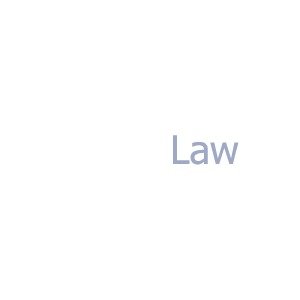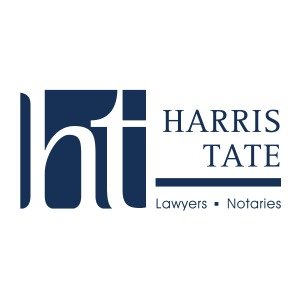Best Employment & Labor Lawyers in New Zealand
Share your needs with us, get contacted by law firms.
Free. Takes 2 min.
Or refine your search by selecting a city:
List of the best lawyers in New Zealand
About Employment & Labor Law in New Zealand
Employment and labor law in New Zealand is designed to establish a fair and productive workplace environment. The laws govern the relationship between employers and employees, covering rights and responsibilities, employment agreements, working conditions, and dispute resolutions. The primary legislation includes the Employment Relations Act 2000, the Holidays Act 2003, and the Health and Safety at Work Act 2015, each aiming to protect workers and ensure fair treatment across all sectors.
Why You May Need a Lawyer
There are several situations where individuals or businesses might require legal assistance concerning employment and labor matters. These include disputes over employment agreements, cases of alleged unfair dismissal, handling workplace harassment or discrimination claims, negotiating collective bargaining agreements, and ensuring compliance with health and safety regulations. A lawyer can provide expert guidance, represent you in legal proceedings, and help mediate conflicts that arise in the workplace.
Local Laws Overview
New Zealand's employment and labor laws are centered around several key principles:
- Employment Agreements: All employees must have a written employment agreement that outlines the terms and conditions of employment.
- Minimum Employee Rights: The law guarantees certain minimum rights, such as annual leave, public holidays, and rest and meal breaks.
- Fair Treatment and Equal Opportunities: Laws ensure workplace equality and prohibit discrimination based on various grounds such as race, gender, and age.
- Health and Safety: Employers must provide a safe working environment and adhere to health and safety regulations.
- Dispute Resolution: The Employment Relations Act encourages mediation as the first step in resolving employment disputes.
Frequently Asked Questions
What is the minimum wage in New Zealand?
The minimum wage in New Zealand is adjusted regularly. As of the latest update, it is important to check the Ministry of Business, Innovation, and Employment (MBIE) for the current rate.
Can I be dismissed without a reason during my probationary period?
No, even if you are on a probationary period, the employer must follow fair procedures and cannot dismiss you without a justifiable reason.
How much annual leave am I entitled to?
Employees are entitled to at least four weeks of paid annual leave after 12 months of continuous service.
What should I do if I experience workplace harassment?
If you experience workplace harassment, report the behavior to your employer or human resources department. You may also contact an employment lawyer for advice on further actions.
How are public holidays treated in my employment contract?
Public holidays are separate from annual leave, and employees should receive time off or payment if they work during these holidays.
What is a collective agreement?
A collective agreement is a written contract negotiated by a union with an employer on behalf of the employees it represents, covering terms of employment.
What legal protections exist for part-time or casual workers?
Part-time and casual workers have the same rights to fair treatment, minimum wages, and safety as full-time workers.
Can my employer change my work hours without my consent?
An employer cannot unilaterally change your work hours unless the employment agreement allows for flexibility or you agree to the change.
How can I resolve a dispute with my employer?
The first step is to discuss the issue with your employer. If unresolved, consider mediation services offered by the MBIE or seek legal advice.
Are my employment rights affected if I'm an immigrant worker?
Immigrant workers have the same employment rights as any New Zealand worker. Discrimination on grounds of nationality is illegal.
Additional Resources
There are several resources and organizations that provide useful information and support for employment and labor issues in New Zealand:
- Ministry of Business, Innovation, and Employment (MBIE): Provides information on employment rights and obligations.
- Employment Relations Authority: An independent body that resolves employment disputes.
- Citizens Advice Bureau: Offers free and confidential advice on employment-related matters.
- Community Law Centres: Provide free legal advice and resources for individuals with employment issues.
- WorkSafe New Zealand: The primary workplace health and safety regulator.
Next Steps
If you find yourself needing legal assistance in employment and labor matters, consider taking the following steps:
- Identify the Issue: Clearly define your employment-related issue or dispute.
- Gather Documentation: Collect all relevant documents such as employment contracts, correspondence, and any evidence related to your case.
- Seek Initial Advice: Contact a local community law center or Citizens Advice Bureau for preliminary guidance.
- Consult a Lawyer: Engage with an employment lawyer who can provide expert advice and represent you in legal proceedings if necessary.
Lawzana helps you find the best lawyers and law firms in New Zealand through a curated and pre-screened list of qualified legal professionals. Our platform offers rankings and detailed profiles of attorneys and law firms, allowing you to compare based on practice areas, including Employment & Labor, experience, and client feedback.
Each profile includes a description of the firm's areas of practice, client reviews, team members and partners, year of establishment, spoken languages, office locations, contact information, social media presence, and any published articles or resources. Most firms on our platform speak English and are experienced in both local and international legal matters.
Get a quote from top-rated law firms in New Zealand — quickly, securely, and without unnecessary hassle.
Disclaimer:
The information provided on this page is for general informational purposes only and does not constitute legal advice. While we strive to ensure the accuracy and relevance of the content, legal information may change over time, and interpretations of the law can vary. You should always consult with a qualified legal professional for advice specific to your situation.
We disclaim all liability for actions taken or not taken based on the content of this page. If you believe any information is incorrect or outdated, please contact us, and we will review and update it where appropriate.
Browse employment & labor law firms by service in New Zealand
New Zealand Attorneys in related practice areas.
Browse employment & labor law firms by city in New Zealand
Refine your search by selecting a city.
















